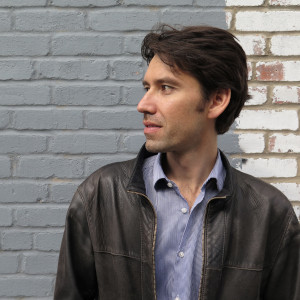Felipe Verdugo
Graduate and visiting professor

An encounter with Felipe Verdugo, graduate and visiting professor in piano at the Université de Montréal Faculty of Music.
In a few words, how would you describe yourself?
I’m first of all a pianist, but I also work as a researcher and as a teacher. I come from Santiago, Chile; I did my undergraduate studies there before coming to the Faculty of Music, where I then did a master’s and a doctorate in piano performance. I really enjoy learning, thinking and pushing a little bit against disciplinary boundaries. That’s why I’ve been involved formally in other areas than music performance, namely biomechanics, music technologies and political science.
Tell us about your experience at the Faculty.
From the moment I arrived here I’ve noticed a culture of mutual assistance and sharing as much among faculty members as among student pianists. An atmosphere like that, quite rare in such a competitive domain, is one of the qualities that I’ve liked most throughout my studies. My research director for the master’s and the doctorate, Marc Durand, deeply marked my evolution at the piano and my relationship with the instrument. He’s had a real impact on my rapport with music as a means of expression inseparable from our experience, and most particularly from our experience at the corporal or physical level.
- In what way has your stay at the Faculty of Music influenced your professional career?
I developed skills and knowledge there that I use every day in my instrumental practice and in my other professional activities. Today I’m a lecturer in piano at the Faculty of Music and for the Séminaire de recherche sur le jeu pianistique, du geste au son, offered for the first time in autumn 2020.
In addition to my postdoctoral fellowships at McGill University and at Université Bretagne-Sud thanks to a grant from the SSHRC and from the FRQSC, I was a postdoctoral researcher at Université de Montréal’s École de kinésiologie et des sciences de l’activité physique. I am expanding, from both a scientific and artistic standpoint, different types of knowledge acquired during my graduate studies at the Faculty of Music having to do with the link between the actions of the pianist, control of sound, and musical expression.
In what way does research contribute to your teaching practices and methods?
As a postdoctoral researcher I’m involved in research projects on the biomechanics of piano technique as well as on control through physical gesture of certain expressive parameters in music. Those activities have enabled me to enrich my teaching methods by bringing scientific evidence to the knowledge I pass on to students, including at the level of the involvement of the entire body and not only the fingers and arms in playing, and in refining the vocabulary used to convey that knowledge. My research activities also allow me to integrate my students into the projects I’m heading, which provides them with not just experience that is complementary to their instrumental practice, but also financial support while they do their studies.
What, in your opinion, are the most important qualities for a pianist?
First, a great capacity for work combined with an ability to enjoy other dimensions of life. Next, a musical mind both sensitive and attentive to details associated with a capacity for stepping back in light of the general context. Finally, good self-esteem joined with a strong spirit of self-criticism. And a constant desire to learn!
January 2021